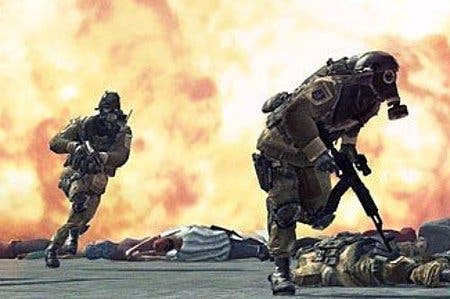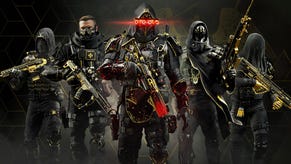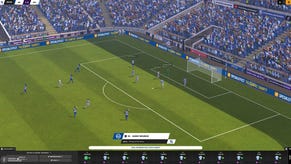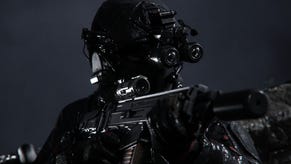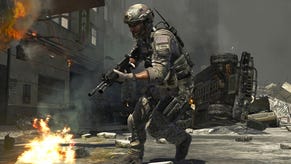Activision: combating Call of Duty cheaters is a "struggle"
But, "we try not to have too heavy of a hand."
Activision has admitted that combating Call of Duty cheaters is a "struggle" - but it refuses to wield too heavy a hand when it comes to banning players.
Infinity Ward's Call of Duty: Modern Warfare 2 suffered from hacking and boosting to such a degree that it ruined the multiplayer experience for many.
The situation was improved for Black Ops, and improved further for last year's game, Modern Warfare 3.
Hacking is less prevalent in MW3, but boosting in order to unfairly gain experience remains a problem.
In an interview with Eurogamer, Activision producer Noah Heller didn't want to help cheaters by going into detail on all the extra measures the gargantuan publisher will put in place to better improve online gaming security for this year's game, rumoured to be Black Ops 2, but did say that its in-house tools have evolved.
"Like all security, especially on the net, it's a race," Heller said. "We come up with some things, someone comes up with something better. I know the Infinity Ward guys are very explicit about launching the banhammer, and more than a few people have had their stats reset, or even been booted out of multiplayer for a period of time.
"We've evolved these automatic tools that detect boosting. For example, if you kill the same guy ten times in a row, and he just lines up to get shot, eventually you're going to get caught and you're going to get your stats reset. If you're in Elite competition at the same time, you might get disqualified and banned from competing in future competitions."
Heller said it can sometimes be difficult to determine if someone is cheating because the tactics employed by those who do cheat are considered legitimate tactics in some game types.
"It's a struggle. If all of us were in a Lone Wolf operation and Mark [Cox, European Marketing Director of Call of Duty Digital Products] was playing with a riot shield and acting as a bullet shield for me, that would be cheating, because it's a lone operation. In a clan operation, that's good team play. So the tools we built to detect cheating don't really apply to clan operations. They have to be changed and refactored."
Heller said Activision's anti-cheating tools are getting better at working out exactly what's going on - and whether there are nefarious motivations behind player actions.
"I know a couple of things: if Mark is on my clan and I'm killing him because he's on the other team, that's probably cheating," he explained. "I also know that some people might want to hide and disguise their relationships with other users. So, if I just happen to be killing Mark over and over again, but he's only on my friends list and not in my clan, or even not on my friends list, that might lead it to be called cheating.
"And so, we're learning how to weight these different metrics against each other and have built tools to do it more automatically."
Elsewhere, Activision works with Microsoft and Sony to combat console hacking, which Heller describes as "the most dangerous" form of cheating.
"Not only would it let someone cheat by posting stuff to a leaderboard that's not true, but also it would hurt the gameplay of others. It would be terrible if you joined a game and somebody was invulnerable or something, which is not something that's happened with Modern Warfare 3."
It would be terrible if you joined a game and somebody was invulnerable or something, which is not something that's happened with Modern Warfare 3.
Elite, the digital stat-tracking platform that launched alongside Modern Warfare 3 last November, is designed to help keep "the multiplayer audience clean", Heller said.
Despite all the damage cheaters can cause, Activision is keen to only ban players when it's absolutely necessary. This, Heller said, is a tactic the Call of Duty enforcement team learnt from its counterpart at Blizzard, which runs the Battle.net multiplayer platform for the likes of StarCraft 2.
"Where we can, we try not to have too heavy of a hand," he said. "If it's for a digital badge, and what someone did looks pretty fair, we try and let that remain, because we really want hard evidence someone's a cheater before we take enforcement actions against them.
"There's a lot of interaction between the enforcement team and their counterparts at Blizzard. There's more of an overlap than you'd think. A cheater is a cheater and how to handle a cheater from a customer service and policy standpoint is not that much different from game to game."
